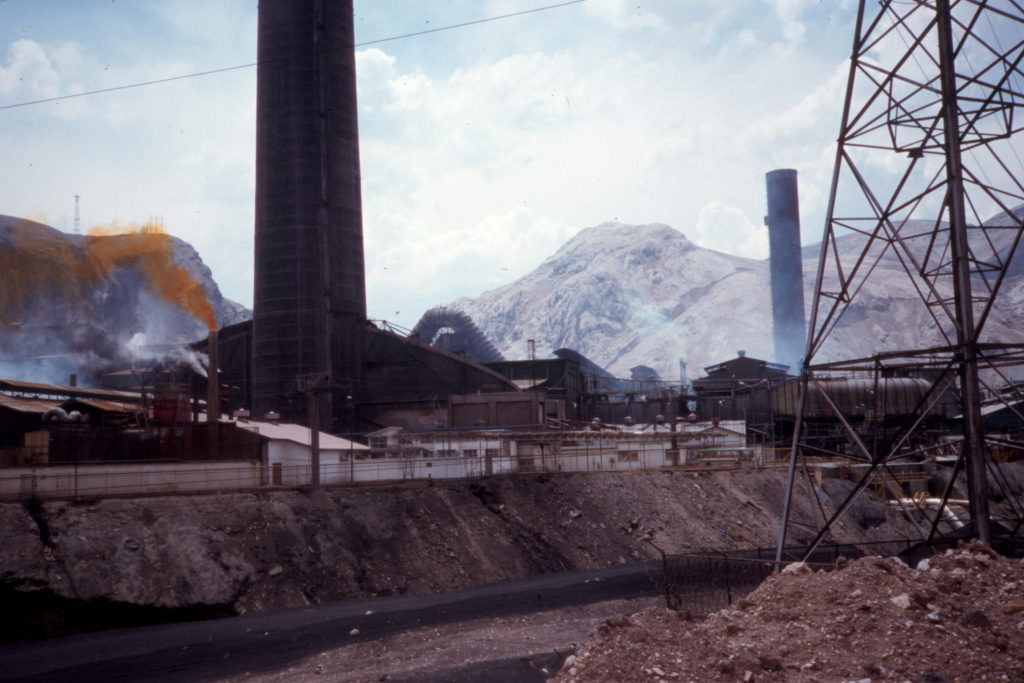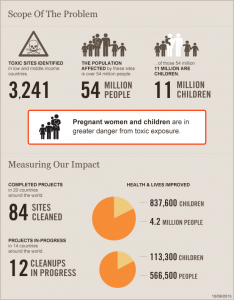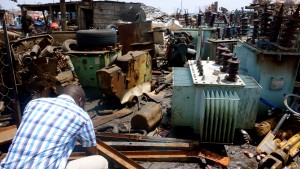
Pure Earth: Cleaning up communities worldwide
By Administrator
The mission of Pure Earth is to clean up toxic pollution in some of the poorest regions of the world, where pollution is one of the major problems, but also where solutions are extremely underfunded. Its strategy starts by making an inventory of dangerous toxic sites in order to prioritize which regions need help the most. Once a site is chosen, Pure Earth implements a pilot or mid-level program to clean up waste, which will hopefully be acquired and scaled up by a national or international agency. Establishing these programs gives the opportunity to teach the best practices, supported by research, for cleaning up toxic pollution to the local community for future independence from aid. The approach of Pure Earth empowers the locals to mitigate the problem of toxic pollution, for they are the most passionate allies to the cause, as it is closest to their homes and their loved ones are in danger of the health risks.

Pure Earth has taken on an impressive number of projects in numerous countries. Projects include many methods of reducing toxic pollution in low-income countries, such as implementing programs for phasing out the use of leaded gasoline in Mozambique, cleaning up gold mine sites with mercury emissions in Guinea, recycling batteries in Panama, and mitigating groundwater contamination in India.

Pure Earth is continuing to do amazing work. A stand-out program that began in 2013 is the E-Waste Recycling Center in Ghana. The practice of breaking down electronic materials and harvesting the valuable parts can be very toxic to those who are working around it as well as those exposed to the improperly managed waste sites. For example, the method of harvesting copper wire from electronics that is being used is incredibly toxic, because the plastic coating around the wires is being burned off. The outcome is a “black smoke that continuously hovers over the site…in order to keep the fires burning, old car tires are also added to the flames, creating a toxic environment far and wide.” Consequently, the workers, their families, and the community as a whole are exposed to many toxins including heavy trace metals, lead, mercury, PCBs, and others. Up to 40,000 people are unnecessarily affected by pollutants. . The E-Waste Recycling Center allows the local workers to properly disassemble and dispose of electronic waste, including (and especially) copper wires, as it is equipped so that the plastic coating around copper wires can safely be stripped off and recycled as well, causing negligible, if any, pollution.
Pure Earth does a thorough job evaluating the efficacy of each phase of its projects and modifying the goals in order to be successful. That way, when the project is completed, Pure Earth can leave the site knowing that it has left the operations running smoothly and the communities safer and healthier than they were before. In the case of the E-Waste Recycling Center in Ghana, it became clear soon after the first phase of the center’s operation that the mechanized wire stripper worked on large cables, but not on bundles of thinner wires coated in plastic. Therefore, a machine was installed which chopped the bundles of wires into smaller pieces and then separated the plastic from the wire. This method of checking the methods and adjusting the outcome is a responsible and sustainable way to give to communities that need it and leave it in their capable hands when the work can be passed on.
Since its inception, Pure Earth has been an advocate for the health and safety of lower income communities worldwide and has provided an astounding amount of support to achieve its mission. It is with great pleasure and thanks to our donors that we are able to support this impactful organization. Pure Earth received a $9,805 grant from the Foundation Beyond Belief.
